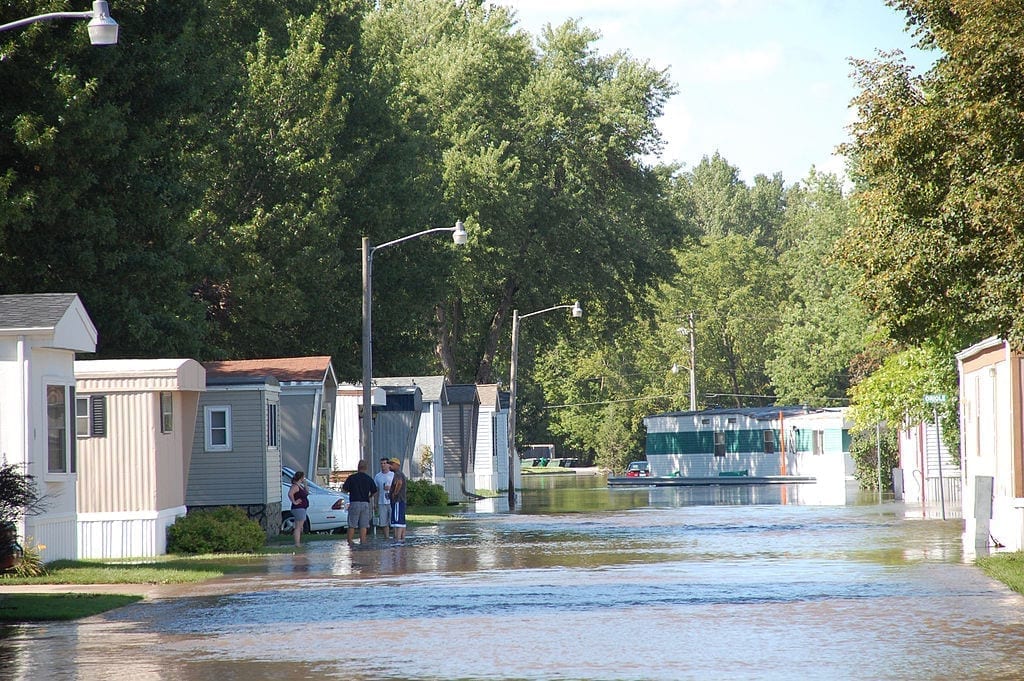We live in a mightily individualistic society, don’t we? Our capitalist culture values self-made people who pull themselves up by their own bootstraps, needing no one. Our fear of scarcity makes us afraid that someone else will run off with our hard-earned stuff. Go into any coffee bar and you’ll see that every man is an island behind an iPhone. The need to come together for harvests, barn raisings, and mutual aid is quaint, technologically obsolete except in extreme circumstances. Yet even in our divide-and-conquer culture, there are still ways that we can all benefit by working together. Despite obstacles thrown by governmental or corporate bureaucracy, cooperation helps groups and individuals meet goals and get the help they need. The following examples are inspirational fodder for situations that we, or people we love, may someday face.
Advocates of states’ rights point out that all of the fifty states in the union have their own economies, resources, values, and priorities. They’re correct! However, whether people prefer strong Federal control waxes and wanes with how confident they are that the party in power will look after their interests. If their political tribe is in control, why, we have good, common sense government and everyone would do well to listen. If the other tribe is, well, it’s all about states’ rights, eh?
One workaround for states whose citizens naturally share values or goals, perhaps under a relatively hostile regime in Washington, is to form interstate compacts. Compacts are not well-known, but this kind of cooperation helps states with mutual interests share benefits and responsibilities. Some compacts are widely shared, such as the agreement that states recognize each others’ drivers licenses. Other compacts are based on shared resources, such as the Great Lakes Compact. This agreement between eight states (and two Canadian provinces) protects the Lakes and the St. Lawrence River, the largest contiguous body of fresh water on the planet. Other states could potentially agree to interstate compacts for any number of needs or priorities.
Cooperation helps people at home. In Fridley, Minnesota, the owner of a trailer park notified residents that he was about to sell the land and that they might have to move. The residents, living on small or fixed incomes, were desperate: where would they go? They met and decided, with help from an outside organization, to buy the land themselves and form a cooperative. Trailer parks are typically shabby because the profit motive incentivizes owners to collect rents as high as the residents can afford while paying for as little maintenance as possible. In Fridley, the residents now make these decisions for themselves. They decided to repair the potholes and fix the water pipes that the old landlord let decay, and take care of each other, too. Living in a cooperative means more community engagement, but working together meant creating a better place for themselves and their neighbors to live.
Facing a moral and humanitarian crisis, as some churches will under the incoming Trump administration, is daunting. Choosing to follow the example of Jesus while living under a hostile government means putting yourself between authority and “the least of us.” Invoking the ancient concept of a house of worship as a place of sanctuary and safety, some 450 religious congregations across the country are organizing to protect immigrants. Some churches are sheltering immigrants directly, allowing them to live in basements and fellowship halls. Other smaller congregations, unable to provide shelter directly, are pledging material support, such as money, food, and legal aid. Matthew 25:31-46 commands Christians to care for the neediest as if they were Jesus himself, and the Bible is full of exhortations to help immigrants and asylum-seekers. Cooperation helps them do so.
Mexican Immigrant Seeks Sanctuary at Philadelphia Church, by Fusion
Hard times may be coming, but it doesn’t mean we have to face them alone. Are there others in your neighborhood, parish, workplace, state, or other affinity group with similar problems and worries? Teaming up is more useful than giving into despair. Remember, there is strength in numbers. Cooperation helps bring more hands, minds, resources, and resolve to bear against the forces opposing our interests. Perhaps it is time that we consider becoming our brother’s keeper.


Join the conversation!